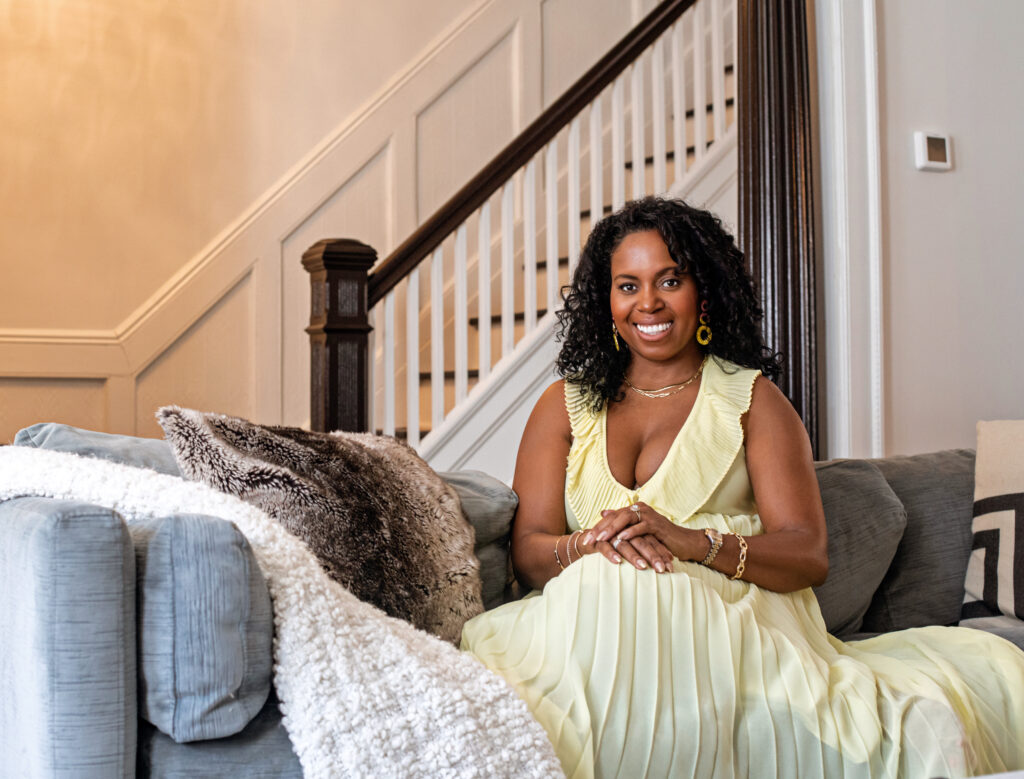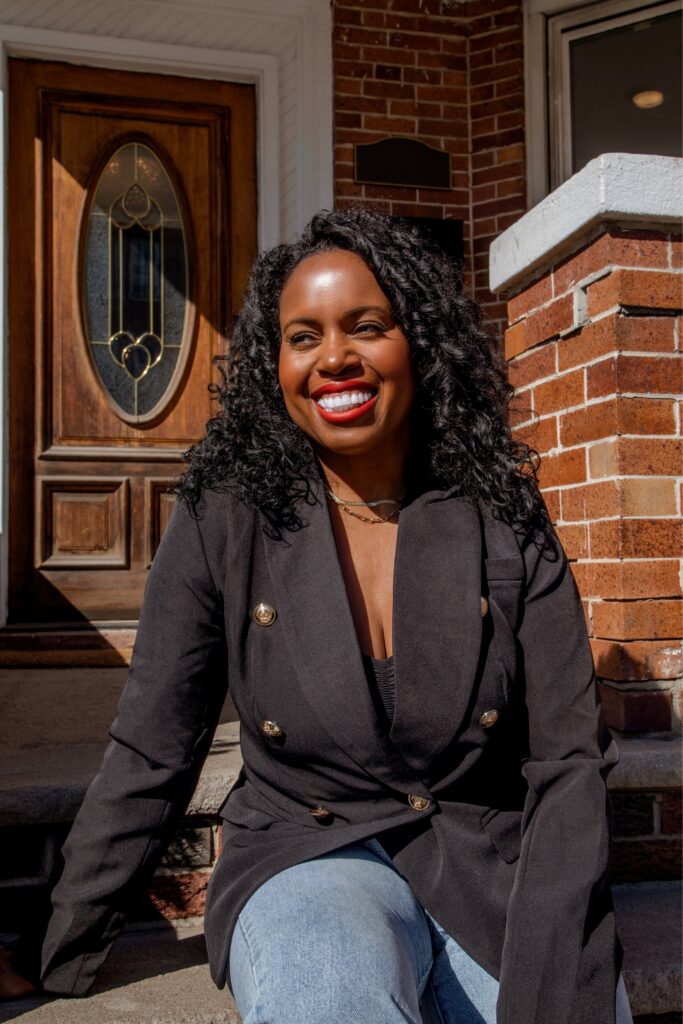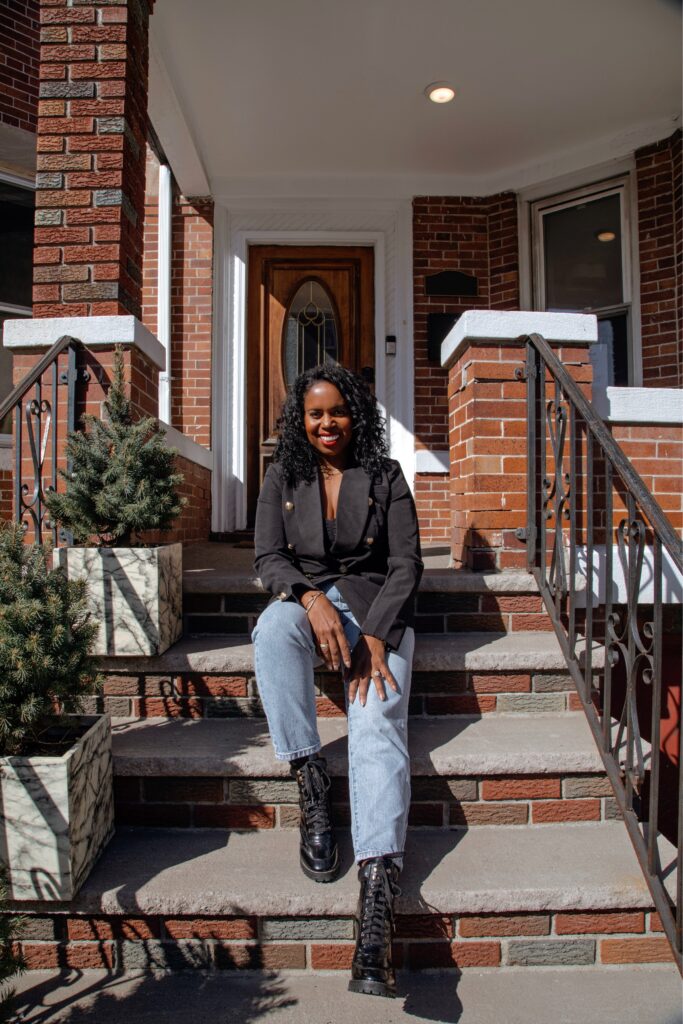“Start somewhere. My clients buying multi-million dollar brownstones today are most often trading out of their 1 or 2 bedroom homes.”
What is your occupation?
Real Estate Broker in New York City
Can you please share your nationality or cultural background?
110% Jamaican
How long have you owned your brownstone?
Two years
Can you start from the very beginning and tell us about your path to ownership?
I did what I tell so many of my clients to do. I purchased what I could afford while I built up savings and resources for a house purchase. For me, that was a co-op home in Clinton Hill. Very simple and very small, but I put a lot of love into that space and created such a great home for myself, when I ultimately sold it there was a bidding war on the first day. It sold in one Open House and set a record at the co-op for that size unit sale. I made more money on that sale because I had poured what resources I had into creating great space. After that, I rented in a high-rise building, because that was something I had always wanted to do. I wanted that full-service experience. That was fun until it wasn’t and that was right around the time that I realized that I had spent about $50K renting something I could never own.
When I found this home, I wasn’t sure if I had the bandwidth to deal with a purchase, renovation, chasing contractors, etc,… I knew that life well from my previous career and I wasn’t too keen on it. This time it was different, I had a partner that had vision, resources, and more patience than me. We worked like a tag-team and when I would tire myself out, he would jump in and get things done. Our strengths were obvious; I like the pretty parts, the design, the floorplan, textures, and materials. He was all over the budget (boo!) and managing the teams. We focused on having people do only what they were good at so we would bring in a cabinet team, knowing they would work fast and keep us on schedule, but have to work at a pace to align with the stone team. We would have someone come in and do all the clean-up, so the contractors could move along at a faster pace. We had separate teams working so they depended on each other to stay on schedule, that pressure kept them on schedule. We finished a full reno in under four months.
What is your favorite part about your home and why?
I love my backyard. We designed it to party so we have a bench built into the fencing and what I like to call a stage/dance floor. It gets perfect sunlight and is my favorite place to work and catch up with my girls.
Can you share any obstacles you might have faced on your quest for ownership and how you overcame them?
There are mental, physical, and financial obstacles. For most of us, it is “.how am I gonna come up with that much money?” That’s a huge obstacle so I believe in tricking your mind to accept starting where you are. If a studio apartment is your most attainable first purchase, then you start there! At least that is gaining appreciation while you work out your master plan over the next few years.
For example, if you buy a condo for $400K in 2018 and it’s worth $500K in 2021, you’re that much closer to the downpayment on your next home. You have what you’ve saved, plus what you’ve made on that first property. You must start where you are and stop making the end goal the only goal. It’s about progress. The physical challenge is it’s a lot of work to create great space. Unless you can have a team come in and, “Wahla!, it’s perfect,” prepare to be spending lots of time at tiling, plumbing and [at] appliance stores.
The financial challenge is the sacrifice, and that’s where you lose most interest. Huge investments can be lots of delayed gratification. You have to be ready to make the financial sacrifice, owning in this city is not as easy as the rest of the country. Personally, my ability to overcome any of those annoyances really comes down to knowing and seeing solid proof that the pros drastically outweigh the cons.
What advice do you have for young Black women who want to own, but feel there are too many roadblocks in their way?
Break it down into smaller steps. Set a realistic budget, SAVE YOUR MONEY. When it’s time, speak to an experienced lender about money, an experienced realtor about the real estate market, and a real estate lawyer about the legal process. Let the professionals guide you and know that your first home is just that: your first home. Start somewhere. My clients buying multi-million dollar brownstones today are most often trading out of their one- or two-bedroom homes. They are selling those smaller spaces (that they made a significant appreciation on) and now buying their pre-war home.
What do you believe is the generational significance of homeownership for Black people?
This goes so deep. There was a generation, one that came before mine that believed in homeownership as a wealth-building tool. I hear these stories from my elders where many family members partnered to buy properties and if it took six people to cover the expenses, that’s what they were willing to do. If you observe so many pre-war homes now, you see how they were SROs or multi-family use. Those are my favorite stories and when I sell their homes today and they profit millions, I cheer for them because that’s what it’s about. Yes, it’s home, but it’s wealth! It has less to do with the physical property and more about how it provides freedom to my clients. That’s what wealth can do. It’s putting yourself in a better financial position, opening up options.
I sometimes feel like that skipped a whole generation. The right real estate can be a great tool for building and sustaining wealth. When I see homeowners preparing to sell because no one in the family (of my generation) is able to take over the property, offer a good price to purchase it or maintain it, it does get to me. I can’t deny that. Look, I sell homes. It’s how I make my living, but the work that I love most is educating young women on reaching the homeownership goal and how attainable it really can be. I recently got a call from a young lady that I sold a co-op to in 2016. She may have paid $405K for it then; it was what she could afford and a great investment. I’m pretty sure that I will sell it for $550K this year when she moves on to buying a single-family pre-war home. She’s saved some cash [and], between that and her sale profits, she will be well-positioned to purchase her new home. I see this every day. But you would look at her and say, “How did this woman accomplish this or that?” She started somewhere as opposed to not start[ing] at all.
The article has been edited and condensed for clarity.



